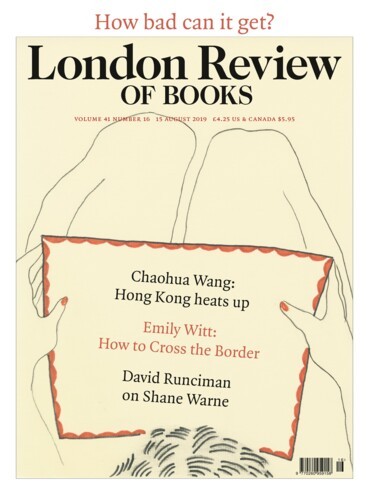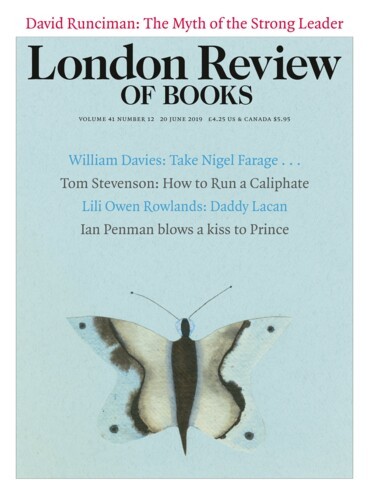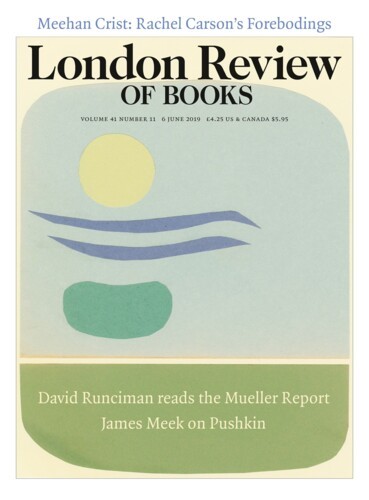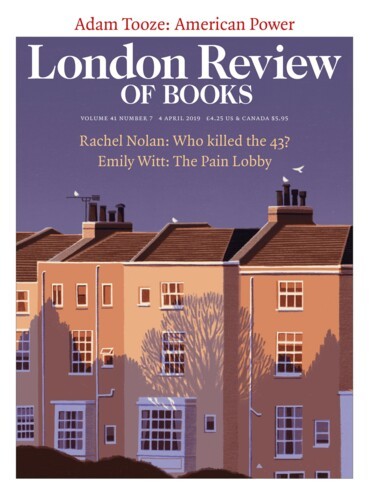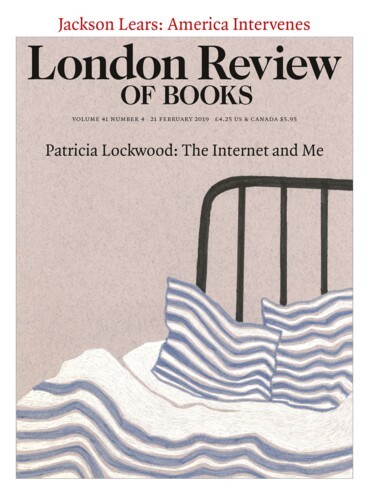Fat Bastard: Shane Warne
David Runciman, 15 August 2019
When the Australian cricketers Steve Smith, David Warner and Cameron Bancroft were exposed tampering with the ball during last year’s test series in South Africa there was, along with all the faux outrage, some genuine incredulity. Why did they take such an insane risk? The subterfuge was so cack-handed – rubbing the ball with lurid yellow sandpaper, perfectly suited to be...
